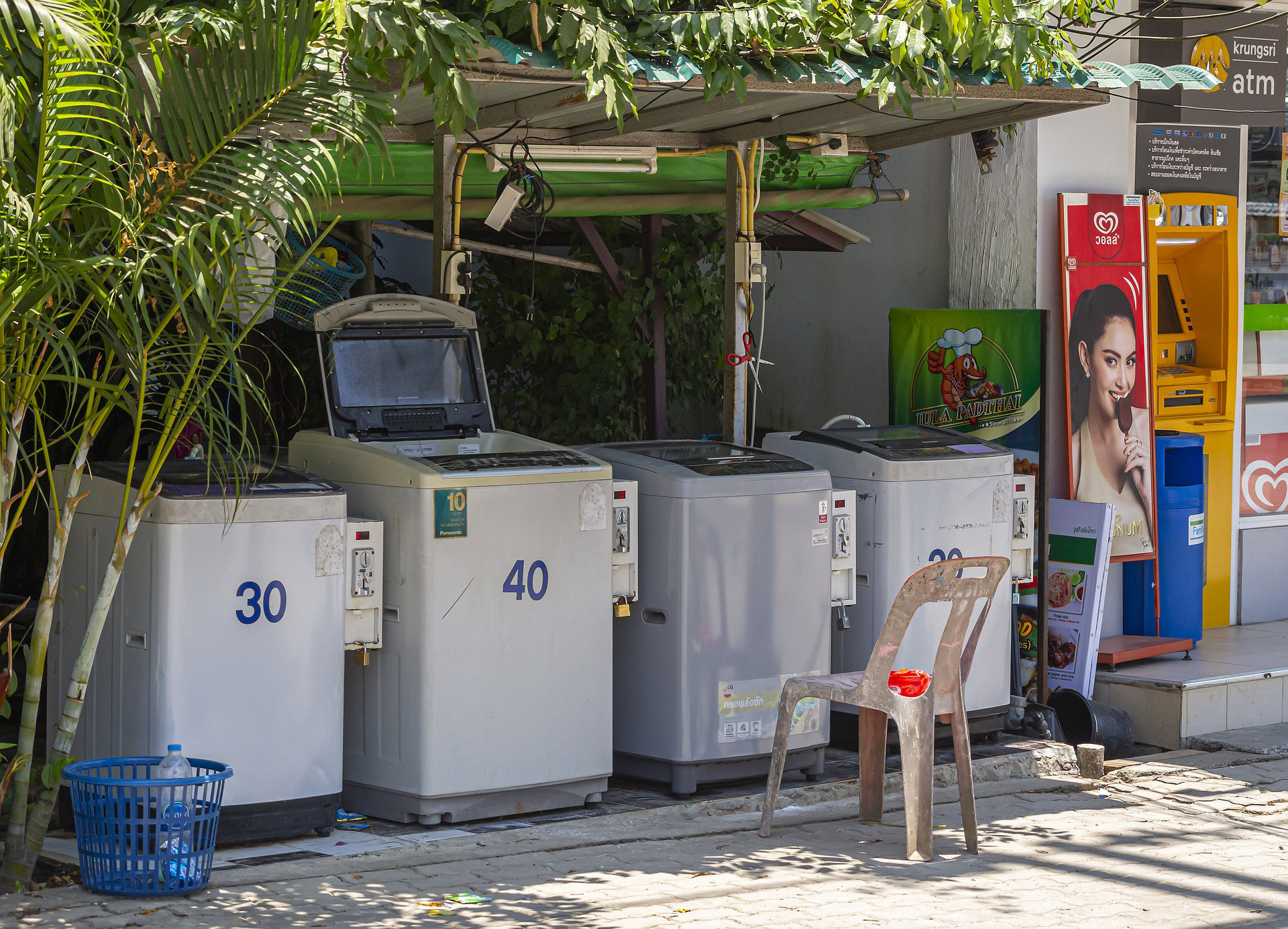Not all of us have the luxury of abundant indoor space; sometimes we are forced to keep some much-needed appliances outside – one of the most common being the washing machine.
While most washing machines have built-in features to withstand the elements of the outdoors, exposing them to sun and rain may lower their lifespan – or at the very least deteriorate their looks. So, yes, you can out your washing machine outside, but it is hardly ideal.
I get it though, sometimes you have to do what you’ve got to do. This is why I’ve written this article to give you some tips to help you protect your washing machine if you have no other storage space but the great outdoors.
Note: placing your washing machine outside may fall under “customer misuse” and can void your warranty. Check your warranty card for more info, or ask your salesperson or a customer service representative from the brand.
Prerequisites
Here are some non-negotiables when it comes to choosing a space for your washing machine. Some of this may be hard to come by outdoors, but there are some workarounds you can use to solve these problems.
Water Source
Ideally, a washing machine should have its own space that’s near a water supply and that also has a place to drain the wash water away. You wouldn’t want to fill your fully auto washer with water manually now would you? In a pinch, you can use your kitchen sink as both a water source and a drain basin. If you’re having trouble connecting your washing machine’s inlet hose to the nearest faucet, there are hose extensions you can buy in hardware stores (check the sizes first if it’s compatible with yours).
Power Source
Using an extension cord for semi-automatic washing machines and dryers are generally safe. However, when it comes to fully automatic washing machines and electric dryers, it is better to have a dedicated power source. Using an extension cord for these types of washing machines can be a fire hazard as they pull in more power that a humble extension cord can’t handle. Apart from that, the washer and the electric dryer should not be on the same circuit as the power draw may be too much and result in a tripped breaker.
How sunlight affects your washing machine
Direct sunlight is bad for most appliances because of its UV radiation. This radiation can eventually break down matter over time. For appliances – especially those colored white – this manifests itself when the appliance turns yellow over time.
It’s not just cosmetics as well. The heat from the sunlight can slowly damage your washing machine’s parts as well. When your washing machine is exposed to sunlight during operation, the motor can get too hot and overheat. Also, the buttons on the front panel of your unit may be more prone to damage.
Solution: the best solution is still to place your washer in a shaded place. You can set up a patio canopy/sunshade if shade is not present. To add another layer of protection, you should use a washing machine cover when storing your washing machine outside.
Important: Don’t use plastics or tarps to cover your washing machine (more on that later).
How rain affects you washing machine
This will not be much of a problem for washing machines with plastic bodies, but if yours is made out of metal, you should read on.
Metal-bodied washing machines are painted with special coatings to protect them from water. While this layer will protect your unit for a while, it may start breaking down especially when exposed to direct sunlight. Also, when the body is damaged or scratched in any way, it will expose a bit of the body to water which can corrode it from the inside.
Also, washing machines are not water-tight; some droplets may end up going into the electronics of the front panel – which can cause shorts and shocks and fires.
Solution: use a waterproof washing machine cover. Plastic covers and tarpaulins are not breathable and will trap whatever water or moisture is under them. This can cause corrosion and molds when left for a long time.
In contrast, washing machine covers have tiny holes that make them breathable and allows moisture to escape. Check this one from Lazada!
Beware of critters
Small insects like spiders and wasps can make a home out of your washing machine. While they may not cause fires or damage your washing machine, it can be annoying to deal with (especially the wasps).
A more serious problem is a rodent infestation in your washing machine. While most models do have built-in protection against rats, some feisty little ones can still get inside and nibble away at your washing machine’s innards.
To prevent this, regularly clean your washing machine and the area around it. Look for the telltale signs of rat droppings and nibble marks – and if you find one, set up traps to stop your rodent problem from getting worse!
Conclusion
While placing your washing machine outside is hardly ideal, there are steps to take to help prolong your washing machine’s life. But remember, you’re most likely voiding your warranty by doing this.
FURTHER READING: Washing Machine Buying Guide
Miguel Mores worked for 5 years as a member of the product management team for a home appliance company in the Philippines. He started 101appliance to answer the most common customer questions that he has encountered during his time in the industry. He now works in the digital marketing field and manages a small online bookstore on the side.

We put ours outside, under a roof on a plywood floor. It lasted 1.5 years and is not washing and extended warranty does not cover it. Get and old washer with a timer for this.